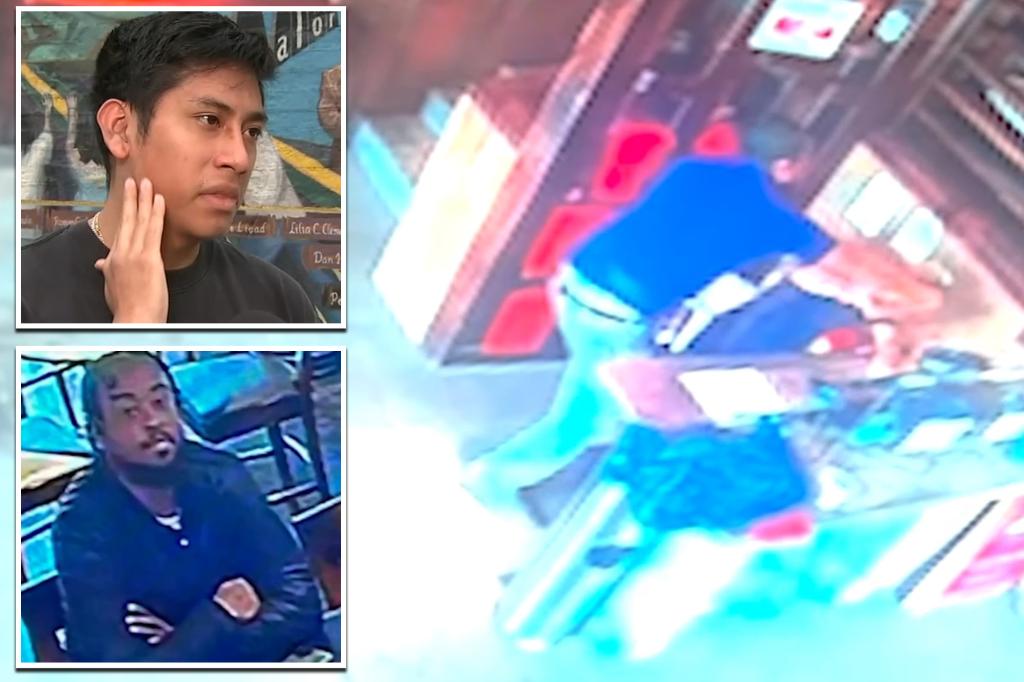The incident at Wokcano, an Asian restaurant and bar in Los Angeles, involved a customer becoming enraged over the slow service and attacking a pregnant server, Kevin Oxlaj, a busser and host at the restaurant, stepped in to defend his co-worker. After an initial confrontation, the customer returned to Oxlaj, removed his jacket, and struck Oxlaj in the jaw, causing him to push the man back. Despite the intervention of a good Samaritan, the customer continued to attack Oxlaj, leaving him with injuries including bruising around his ear and face. Oxlaj, who has a tube in his ear to drain excess fluid, feared for his life during the assault.
Following the attack, the unidentified customer has not been apprehended and has returned to the restaurant several times looking for Oxlaj. This has left Oxlaj and his family frightened and anxious about his safety, especially since the customer has expressed his intent to find the worker. Oxlaj expressed his disbelief that the situation escalated to violence over a simple issue of delayed food service, and the fear of further confrontation has impacted his ability to return to work and his daily life. The incident has sparked concerns about the safety of employees in the service industry, who may face aggressive and violent behavior from customers.
In a separate incident, a dispute over a McDonald’s order in Houston resulted in the tragic death of a lawyer, Jeffrey Limmer. The conflict arose when a customer, Anthony Martin Landry, demanded a refund from McDonald’s workers, and Limmer intervened, leading to a fatal confrontation outside the restaurant. Landry, the alleged shooter, drew a gun and shot Limmer, highlighting the dangers faced by service industry workers when faced with aggressive or unreasonable customers. The tragic outcome of the dispute underscores the need for better conflict resolution measures and customer service training to prevent such incidents from escalating to violence.
The impact of the attack on Oxlaj has been significant, with the employee suffering physical and emotional trauma from the assault. In addition to his visible injuries, Oxlaj has experienced pain in his chest and back, affecting his ability to sleep and function normally. The consequences of the assault extend beyond the physical harm, as Oxlaj now faces uncertainty about his safety and well-being in his workplace and neighborhood. The lingering fear and anxiety resulting from the attack serve as a reminder of the vulnerability of service industry workers to potential violence from customers.
The lack of accountability for the perpetrator in the Wokcano incident has heightened concerns about the safety of workers in the restaurant industry. The continued presence of the customer in the restaurant and his threats towards Oxlaj have created a climate of fear and apprehension for Oxlaj and his colleagues. The failure to identify and apprehend the assailant raises questions about the effectiveness of law enforcement in protecting service industry employees from harm and ensuring that perpetrators of violence are held accountable for their actions. The unresolved nature of the situation has left Oxlaj and his family feeling unsafe and anxious about the ongoing threat posed by the customer.
The incidents at Wokcano and the McDonald’s restaurant underscore the need for improved safety measures and protections for service industry workers who may face violent or aggressive behavior from customers. Employers in the industry should prioritize the safety and well-being of their employees by implementing training programs on conflict resolution, de-escalation techniques, and emergency response protocols. Additionally, law enforcement agencies should take threats of violence against service industry workers seriously and work diligently to identify and apprehend individuals who pose a danger to others. By addressing these issues proactively, businesses and authorities can create a safer environment for employees and customers alike, reducing the risk of violent incidents in the service industry.


